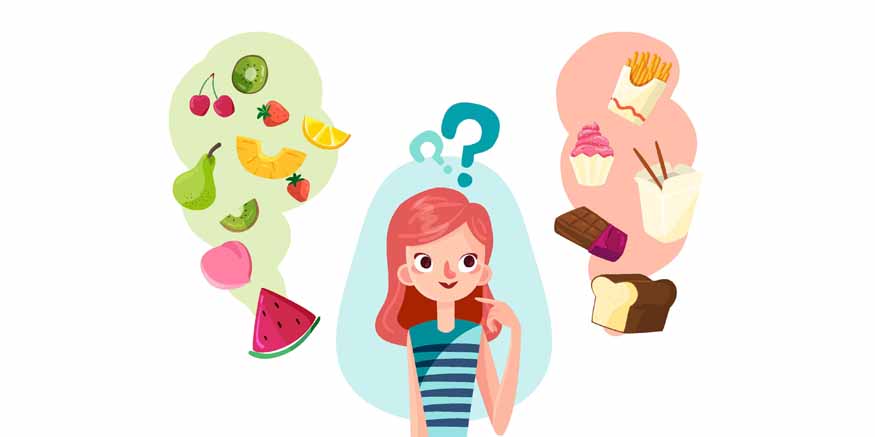Top Nutrition Questions From Moms: Ensuring Healthy Eating for Children

As parents, ensuring your child’s nutrition can feel overwhelming. It is particularly difficult to decide what’s best for your child when there’s so much advice available on almost every subject! This blog will answer some of the most common questions moms have about their children’s nutrition. We will explore the importance of childhood nutrition, how to maintain a healthy balanced diet, and practical tips to help your child develop healthy eating habits.
How Much Protein Does My Child Need?
Protein is essential for growth and repair in the body, but children don’t need as much as adults might assume. To determine the appropriate amount of protein for your child, use their weight in kilograms as a guide. Typically, a child needs about 1 gram of protein per kilogram of body weight. For example, a child who weighs 18 kg would need around 18 grams of protein daily. This can be easily met through a balanced diet that includes lean meats, dairy products, beans, and nuts.
How Much Milk Should My Child Drink? And What Kind Should It Be?
Milk is a good source of essential nutrients like calcium and vitamin D. However, it is recommended to limit your child’s milk intake to no more than 250 ml per day to avoid excessive calorie intake, and to encourage the consumption of other nutrients.
Is It Okay to Give My Child Sweets?
Sweets are appealing to children, but it’s crucial to limit their consumption to promote healthy eating habits. Overconsumption of sugar can lead to obesity and dental issues, and therefore it’s always a good idea to save sweets for special occasions. Instead, you can offer healthier alternatives like fruits or homemade snacks with natural sweetness.
Is It Okay to Give Juice to My Child?
Juice – even when it is 100% fruit juice – is high in sugar and lacks the fibre found in whole fruits. Hence, it’s best to limit juice intake to no more than 120 ml per day. Instead, encourage your child to eat fresh fruit that will provide them with necessary fibre, and reduce their sugar intake.
Is It Okay to Give the Same Foods Every Day If They’re Healthy?
Variety is key to a healthy balanced diet. While it’s okay to include favourite healthy foods regularly, it’s essential to ensure your child gets a mix of nutrients. Incorporate a range of fibre, complex carbohydrates, healthy fats, and proteins to provide a well-balanced diet.
Does My Child Need Snacks?
Healthy snacks can be beneficial, especially for active children. If your child needs something between meals, offer nutritious options like fruits, vegetables, nuts, or yoghurt. Avoid sugary and processed snacks, which can contribute to poor eating habits.
How Can I Encourage My School-Going Children to Eat More Veggies?
Incorporating vegetables in various forms can make them more appealing to children. Include veggies in wraps, salads, soups and parathas to make them more exciting for your kid. You can also involve your child in meal preparation, making them more likely to try what they helped create.
Can You Suggest Calcium-Rich Food Alternatives for a 6-Year-Old?
Calcium is crucial for bone development in children. Apart from milk, other excellent sources include ragi, nuts and seeds, and green leafy vegetables. These alternatives can help ensure your child gets adequate calcium without relying solely on dairy.
How Can I Talk to My Kids About Healthy Eating Without Making a Big Deal of It?
Make healthy eating fun and a natural part of everyday life. Talk about food during meals and involve children in grocery shopping and cooking. Use positive language and focus on the benefits of healthy foods, rather than making a big deal out of unhealthy choices.
When Should I Start Talking to My Child About Food and Nutrition?
It’s never too early to start talking about food and nutrition. Tailor the information to be age-appropriate and keep it simple. For younger children, focus on the basics of healthy eating, while older children can be taught about balanced diets and the role of nutrition in overall health.
How Can I Help My Child Build Good Nutritional Habits?
Start early by offering a variety of healthy foods and setting a good example. Teach your child about the importance of nutrition and involve them in food choices and preparation. Consistent habits formed during childhood can last a lifetime.
Ensuring healthy nutrition for children is a crucial aspect of parenting. By understanding the importance of a balanced diet and addressing common questions about your child’s dietary needs, you can foster healthy eating habits that last a lifetime. Incorporating a variety of nutrient-rich foods, limiting unhealthy options, and making mealtime enjoyable can significantly impact your child’s growth and development.
At Billabong High International School, we are dedicated to nurturing well-rounded individuals who thrive in both academic and personal development. Our curriculum includes comprehensive education on the importance of childhood nutrition, ensuring that students develop healthy eating habits from a young age. To know more about our curriculum, visit our website, or contact our admissions office.





